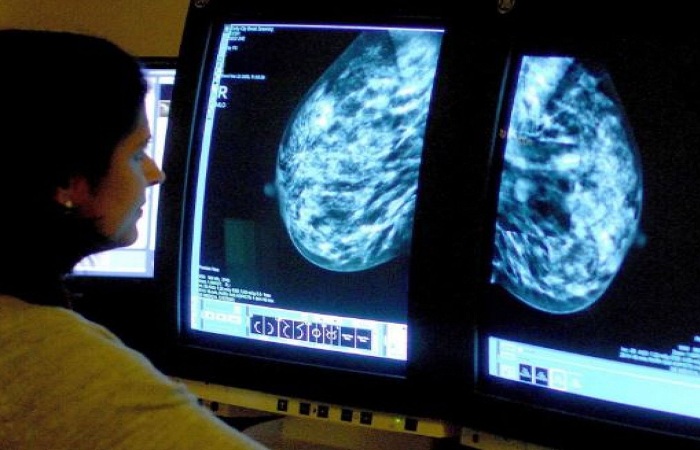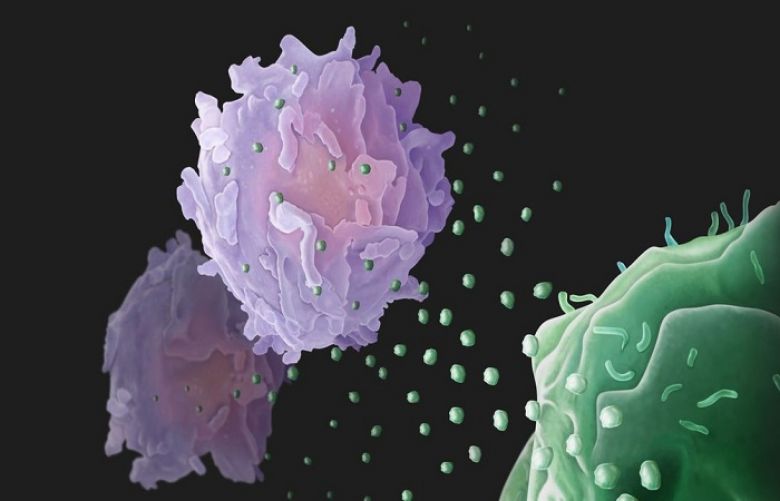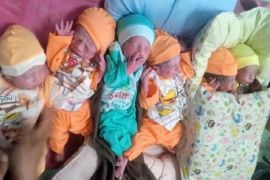Scientists have discovered how cancer cells use biological "drones" in their battle with the body's immune system.
Researchers know that cancer cells are more than just cells growing out of control - they actively fight the immune system to survive.
In a new study, a team from the University of Pennsylvania says cancer cells effectively tire out T cells, specialised white blood cells, before they can reach the tumour.
The cancer cells excrete small tiny fluid-filled capsules, or vesicles, called exosomes. which use proteins called PD-L1 to tire out the white cells.
Exosomes are protected by an envelope made of something similar to fat. They are less than 1% of the size of a red blood cell.
"We propose a model in which these exosomes act like drones to fight against T cells in circulation, even before the T cells get near to the tumour," said Professor Wei Guo, one of the authors of the study.
Published in the journal Nature, the work looked primarily at melanoma, although it found that the biological drones were also excreted by breast and lung cancers.
"Essentially exosomes secreted by melanoma cells are immunosuppressive," said Prof Guo.

The work offers a profoundly different picture of how cancers suppress the immune system, and offers a new way to predict which cancer patients will respond to therapies that tackle PD-1.
"Immunotherapies are life-saving for many patients with metastatic melanoma, but about 70% of these patients don't respond," said Prof Guo.
"These treatments are costly and have toxic side effects so it would be very helpful to know which patients are going to respond [in advance of beginning the treatment].
"Identification of a biomarker in the bloodstream could potentially help make early predictions about which patients will respond, and, later on, could offer patients and their doctors a way to monitor how well their treatment is working."
Professor Xiaowei Xu, who also worked on the report, explained: "We collected blood samples from melanoma patients treated with anti-PD1 therapy.
"This type of liquid biopsy assay allows us to monitor tumour-related immune suppression with time. "
Prof Guo said: "In the future, I think we will begin to think about cancers as a chronic disease, like diabetes."







